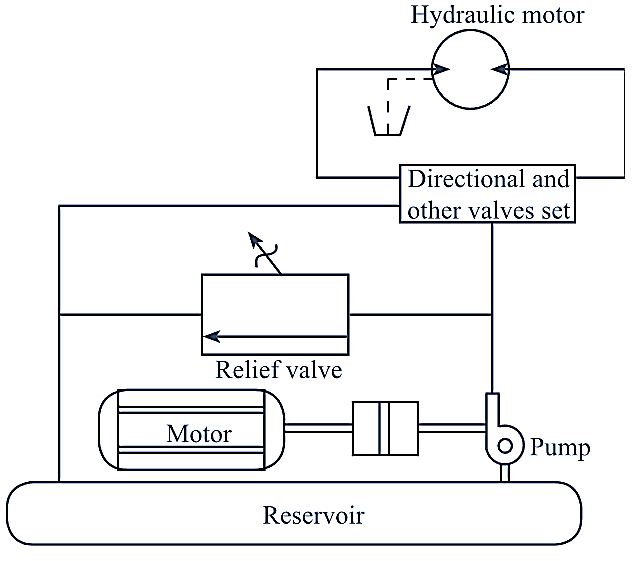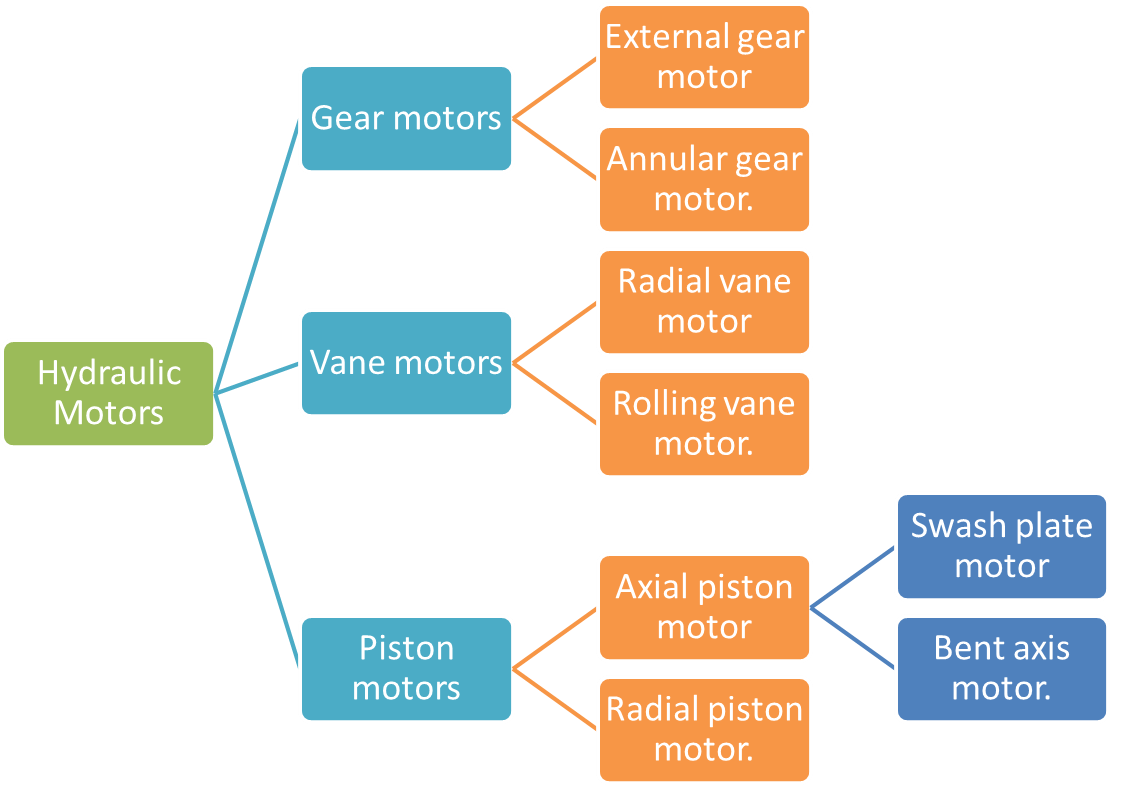Hydraulic motors are the type of fluid power motors in which hydraulic energy of oil is converted to mechanical energy (rotary motion and force) to perform some useful work.
Working Principle of Hydraulic Motor
The working principle of hydraulic motor is reverse of a hydraulic pump. It is explained with the help of the following figure 1. The setup of hydraulic motor consists of a reservoir, pump, electric motor, relief valve, directional valves and a hydraulic motor.

Figure 1: Working of Hydraulic Motor
An electric motor drives the pump as shown in the Figure 1. The hydraulic pump is connected to the directional and other valves set with a line connection. Through which it is connected to the pressure relief valve and to the reservoir. The motor consists of two triangles inscribed in a circle with its bases on the circle and its apex directing towards the centre. It indicates that the hydraulic motor is bidirectional.
During operation, the pump forces the hydraulic oil from the reservoir. The oil passes through the directional valves and strikes on the cam surfaces and pistons present inside the hydraulic motor. Due to which, the rotating element of the hydraulic motor starts rotating. Thus, the driven shaft attached to the rotating element also rotates. Therefore, the oil is supplied back to the reservoir.
Types of Hydraulic Motors
Hydraulic motors are classified as follows,

Based on the principle of displacement, they are of two types,
- Fixed displacement
- Variable displacement.
Fixed displacement type motor is that in which torque remains constant and speed varies. Motor speed can be varied by regulating the fluid supply at the inlet.
In variable displacement type motor, the displacement can be changed by varying the working relationships of components within the motor. General classification of hydraulic motors is based on operating element of motor. They are piston, gear and vane type motors.
Advantages of Hydraulic Motor
- The regulation of speed and positioning of hydraulic motors is easy.
- The size of hydraulic motor is small and compact.
- They can be used in hostile environments.
Disadvantages of Hydraulic Motor
- A hydraulic power unit is additionally required to drive the motor, which increases the cost.
- A reduction gear box must be employed to reduce the speed of motor, which results in higher torque.